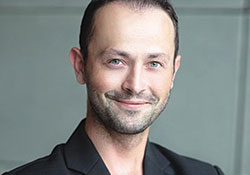Poland: Szymon Chrostowski

Szymon Chrostowski
Health experience related to: cancer
Ensuring coordination across the continuum of care – from diagnosis and treatment to rehabilitation and follow-up care – improves health outcomes and satisfaction with the health system.
I was diagnosed with testicular cancer with metastasis to the kidney 12 years ago. It took 9 months from the first contact with the general practitioner to the final diagnosis of cancer. During this period the cancer was spreading. Once I was put in contact with a doctor from the polyclinic of urogenital systems in Maria Sklodowska-Curie Memorial Cancer Centre and Institute of Oncology, the cancer was diagnosed. An immediate treatment followed and after 1 month I was operated on. Today I am cancer-free and go for follow-up examinations only to confirm that everything is ok.
For those reasons, my treatment can be divided into 2 stages. The first one, before proper diagnosis, was an example of lack of coordination between general practitioners and specialists, which resulted in a worsening of my condition. The second stage, after the diagnosis of cancer, can be described as a prompt reaction, precise and on-time treatment. I was informed about patient rights, provided with an exact plan for my treatment and warned about its potential consequences. I really appreciated the care by the physicians and nurses – I think it was of the highest quality.
I was really happy with the individual information and attention that was provided to me. The medical staff gave a lot of attention to my needs, such as my sleeping difficulties, feelings of pain and dizziness. Due to the type of cancer I had and my young age, they informed me precisely about possible complications in the area of reproductive health, highlighting that at the moment I should postpone plans to become a father. The information was provided in a clear and easy-to-understand manner, and in an intimate environment with face-to-face contact.
As a non-medical person, I didn't have enough knowledge to decide on what would be the best treatment and my only option was to agree with the doctor or resign from the treatment. I fully trusted my doctors; therefore, I had no doubt about the correctness of the treatment.
For the first 9 months, I had to cover some of the costs before my disease was diagnosed. These expenses were later reimbursed by the National Health Fund. After becoming a patient at the Institute of Oncology, I didn't bear any costs.
I was really happy to see the improvement in the coordination of care. Recently, during my stay at the hospital, I was provided with care by a psycho-oncologist and with rehabilitation services.
I think that timeliness and coordination of care were significant in my case. Luckily I was treated at a complex institute, which showed me the importance of network coordination of facilities and skills of specialists. At the Institute of Oncology, I had easy access to a variety of treatments, including rehabilitation and a psycho-oncologist, which gave me confidence that the care provided to me was composed of all essential features.
Despite the difficulties I faced at the beginning of my treatment, the great knowledge, engagement and dedication of the doctors that I met at the Institute inspired me to commit myself to help other patients defeat their illnesses.



